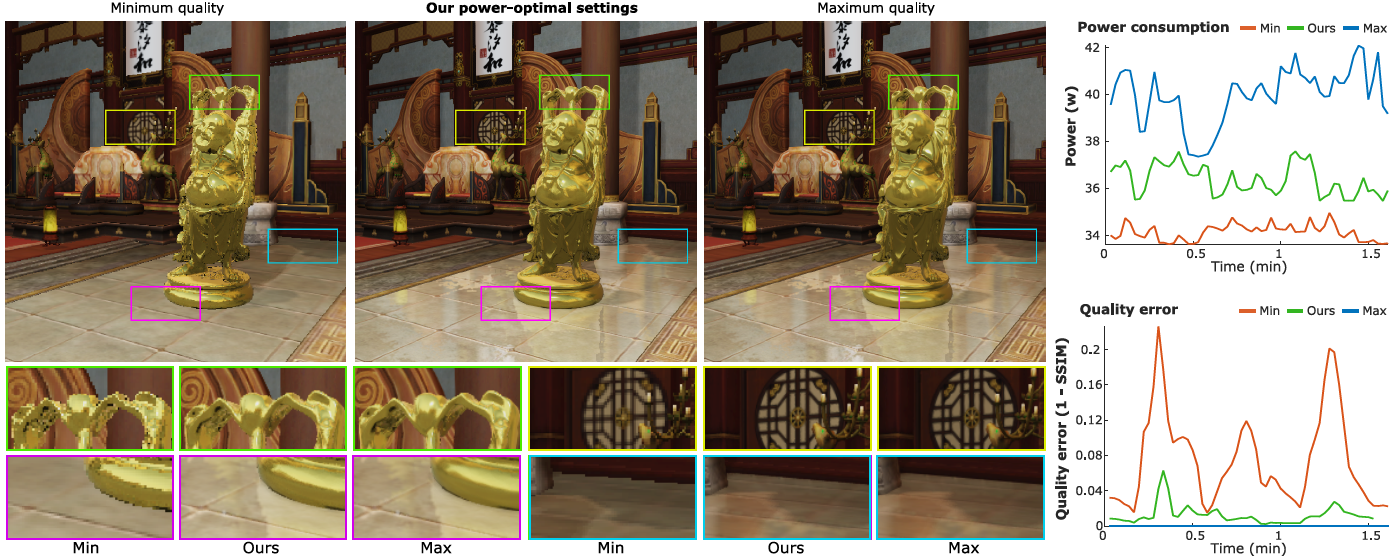On-the-Fly Power-Aware Rendering
Yunjin Zhang
1*,
Marta Ortin
2*,
Victor Arellano
2,
Rui Wang1,
Diego Gutierrez2,
Hujun Bao1
1State Key Lab of CAD&CG, Zhejiang University
2Universidad de Zaragoza, I3A
*Joint first authors
Computer Graphics Forum(CGF), 34(7), p155-166, Eurographics Symposium on Rendering(EGSR) 2018


